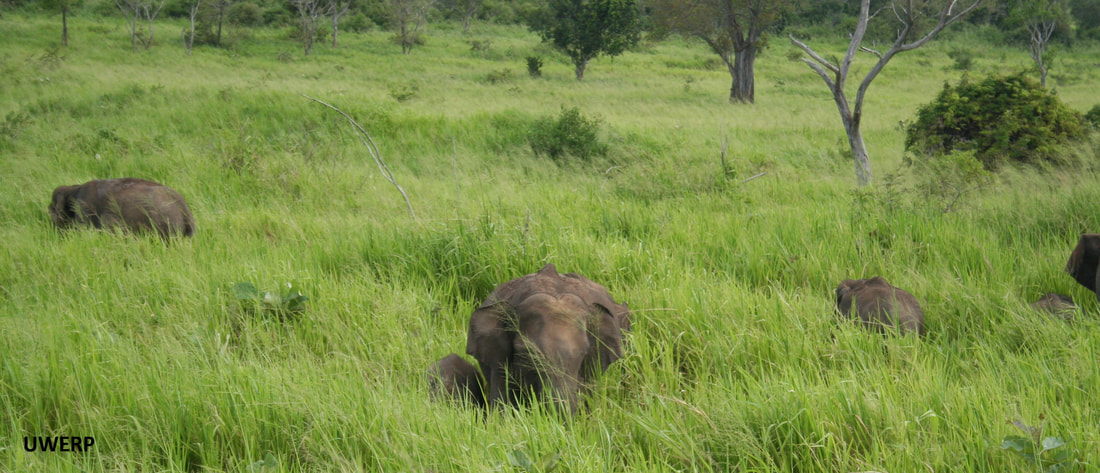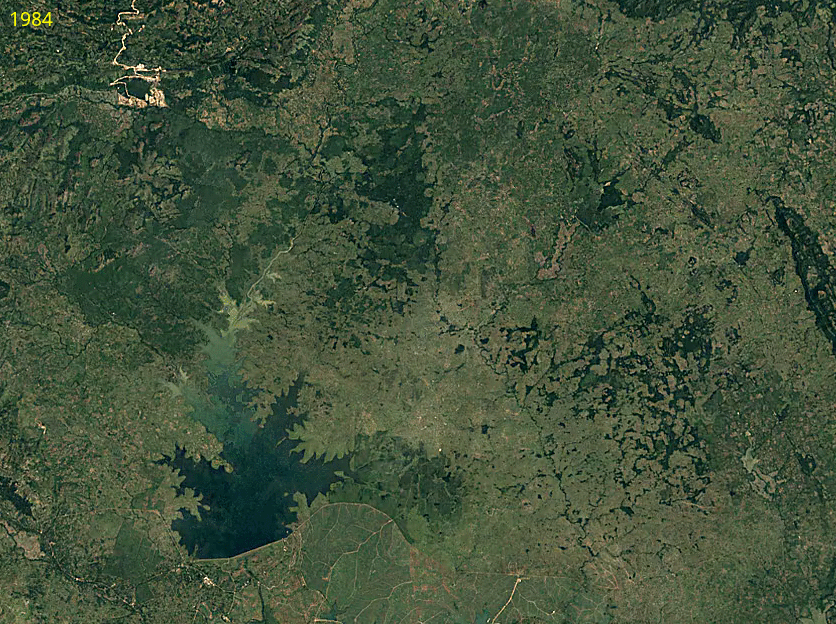Our Beginning
In 2005 UPenn graduate student Shermin de Silva returned to her home country of Sri Lanka hoping to study the animals she had grown up taking for granted - Asian elephants.
They were such a pervasive part of the culture, and captive Asian elephants so seemingly commonplace, that it was surprising that very little was understood about the behavior of wild Asian elephants. Udawalawe National Park, with its spacious savannah-like environment and teeming elephant population seemed the perfect place to start a study. The Udawalawe Elephant Research Project was initiated in collaboration with Dr. Devaka Weerakoon, of the University of Colombo in what was then the sleepy village of Udawalawe. By the time her PhD was completed in 2010, it was evident that the Asian elephants at Udawalawe didn't behave quite as expected based on the many prior studies of their cousins, the African savannah elephants. UWERP was among the first to document the social structure of wild Asian elephants, and the ways in which they communicate. It also uncovered the surprising finding that there were probably twice as many elephants using the national park than people had previously thought there were! The data from these studies played an important role in a 2008 Sri Lankan Supreme Court case that prevented encroachment of a sanctuary attached to the National Park, and prevented it from being de-listed. |
Related Links
|
Udawalawe is a rapidly changing environment. Established in 1970 primarily to protect the Udawalawe Reservoir, the national park was bisected by the mighty Walawe river, one of the four major rivers of Sri Lanka. Following the dam, the original deciduous forest that had covered the entire southern region was gradually replaced with plantations, agriculture, and permanent settlements. Meanwhile, the vegetation in the park was changing too, with grasses and shrubs that were nutritious for elephants being overtaken by the invasive lantana. The post-war economic boom in the late 2000s brought crowds of tourists and prosperity to those who could capitalize on it. But so-called human-elephant conflict was creating hardship among the farmers, who clearly benefited least from the park or its elephants. Electric fences started encircling the park, and nightly battles were waged between the people and risk-taking bulls.
These issues are not unique to Udawalawe, it was happening throughout the range of Asian elephants.
Our data and studies continue to be used by conservationists throughout Asia and beyond to work for elephants, people, and their shared home.
These issues are not unique to Udawalawe, it was happening throughout the range of Asian elephants.
Our data and studies continue to be used by conservationists throughout Asia and beyond to work for elephants, people, and their shared home.
What Will It Take To Protect Asia's Elephants?
|
Trunks & Leaves was founded by Dr. de Silva in 2012 as a result this pioneering research on Asian elephant behavior and ecology. We realized that the majority of public attention was focused either on African elephants, or the conditions of captive elephants.
Trunks & Leaves was created out of the need for greater understanding about the needs of wild Asian elephants, as well as greater public awareness of the threats to their ecosystems and the need for solutions that are sustainable long-term. We continue to be one of the few organizations focused on wild Asian elephants, and the only one with a strong research foundation underlying all of the work we do. In parallel with these initiatives, our goal is to work with agricultural communities to develop more sustainable land-use practices and livelihood strategies so that elephants can continue to roam in these landscapes. In addition to directing Trunks & Leaves' major projects in Sri Lanka, Dr. de Silva collaborates with colleagues around the world. She also supervises advanced undergraduate and graduate students, and conducts public talks and events for audiences of all ages. |
Interested in inviting us to your area?
Submit an inquiry via our contact form! We respond to every authentic message we receive.
|









